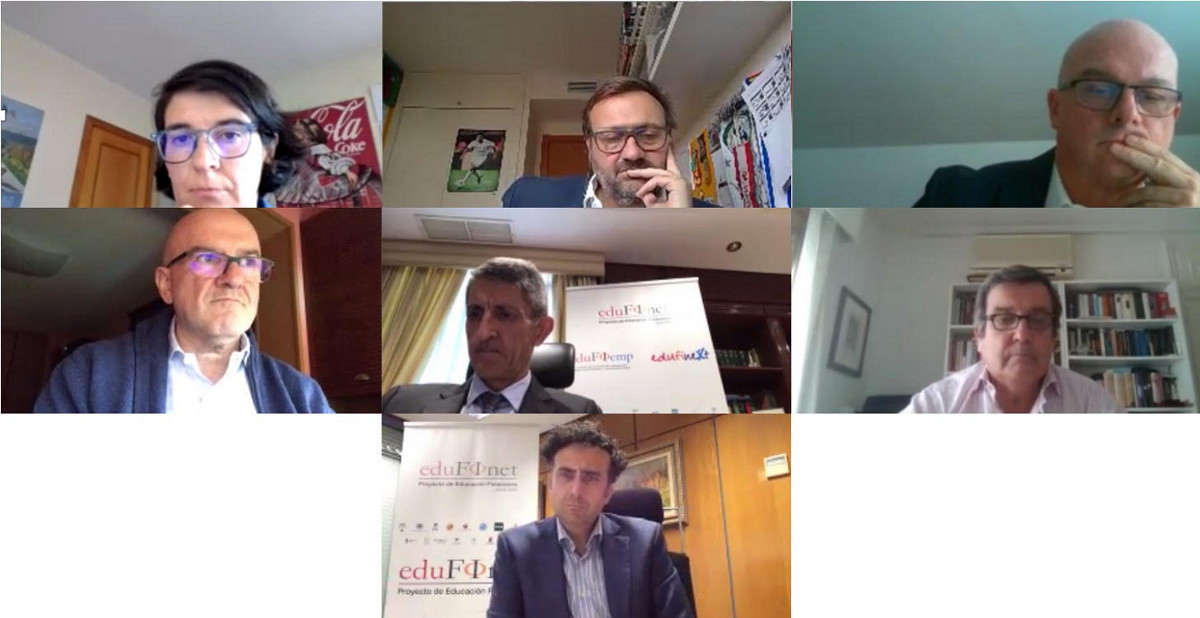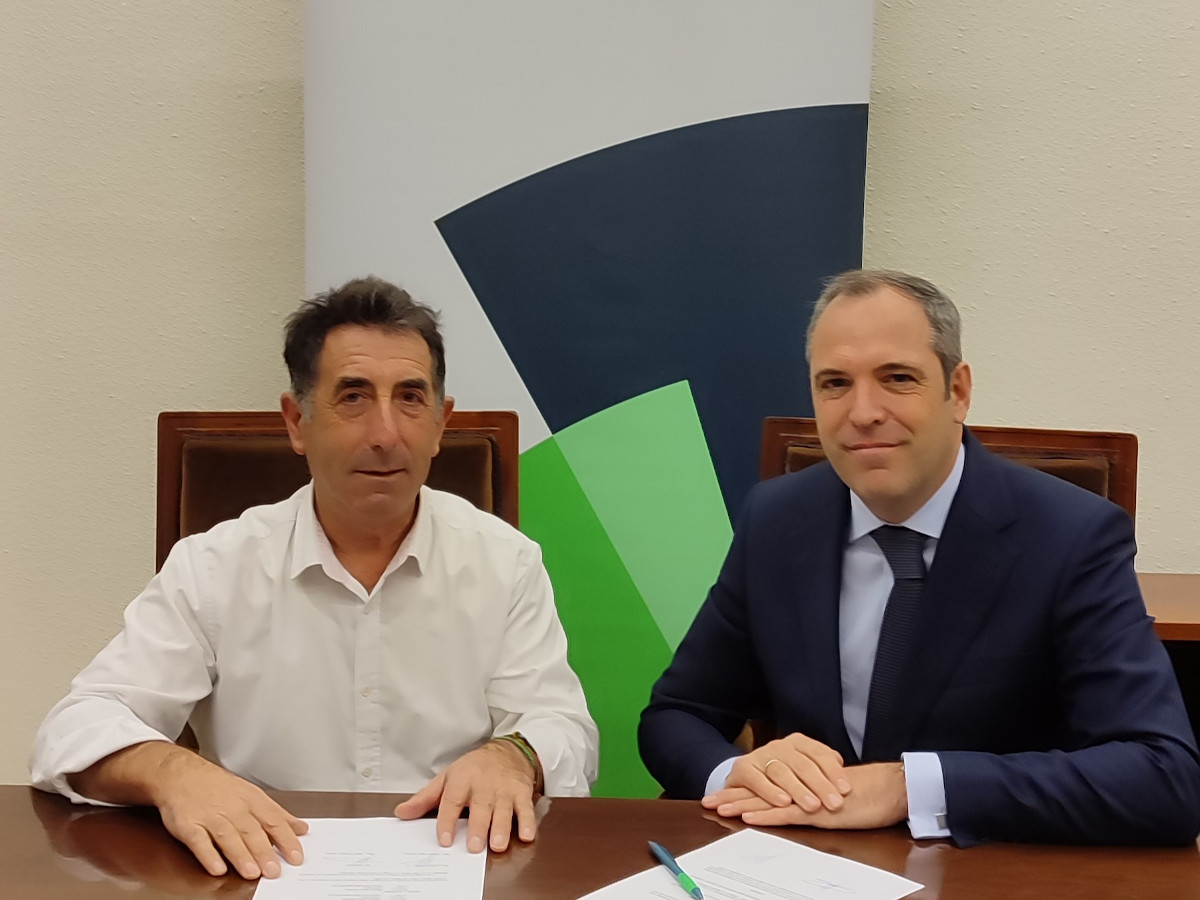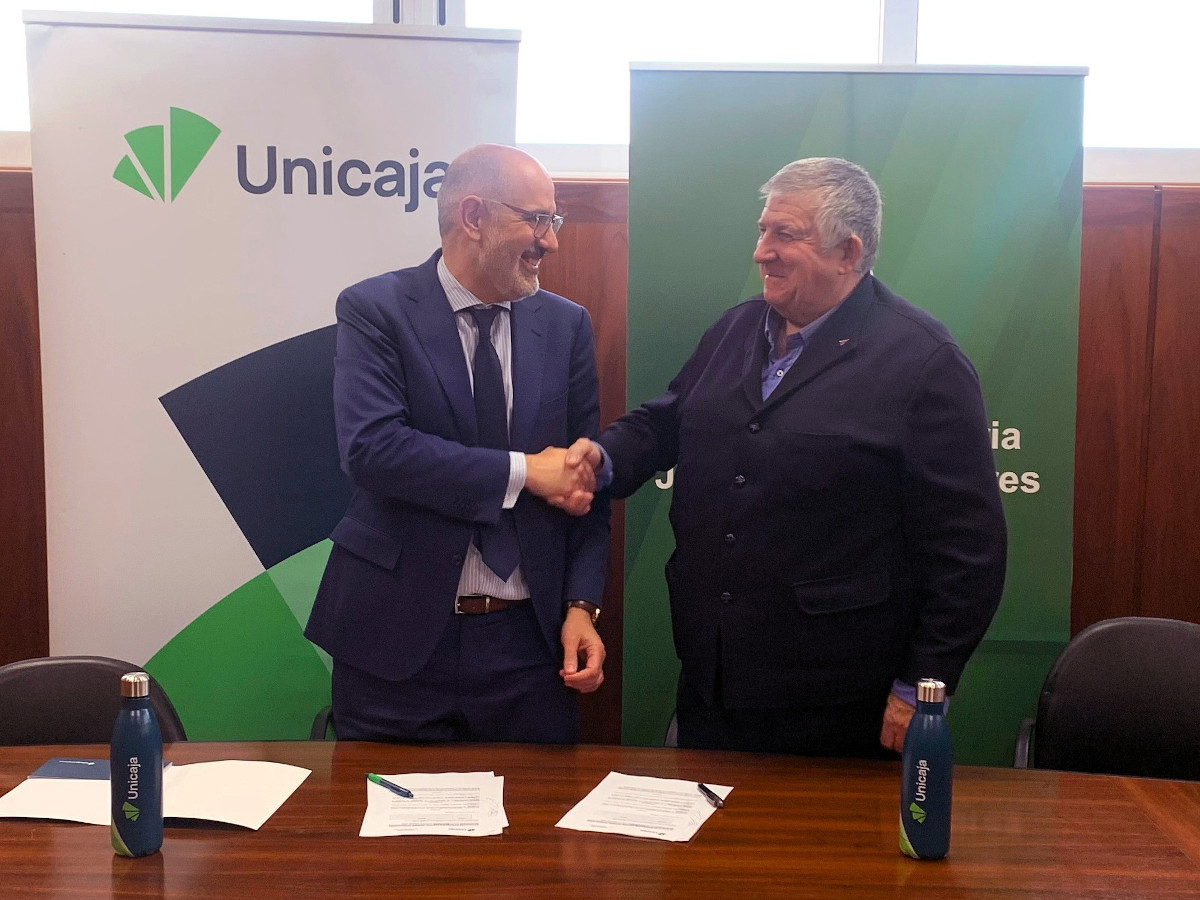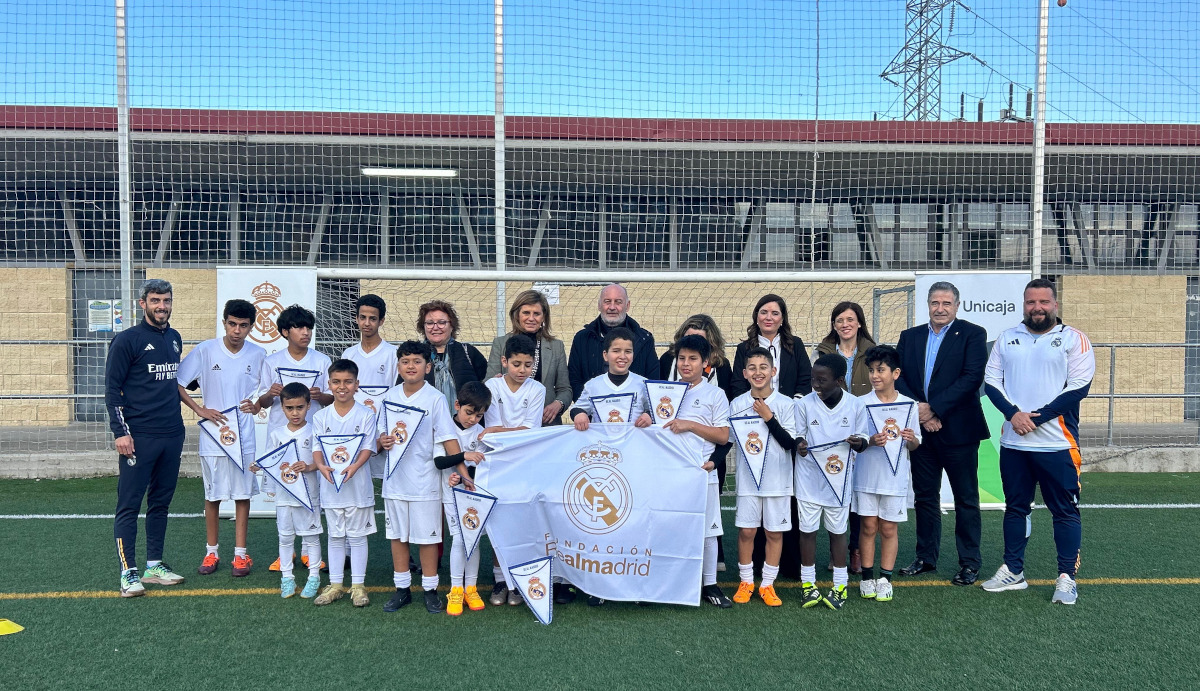The Edufinet Project on financial education, promoted by Unicaja Banco and Fundación Unicaja, strengthens its commitment to online training with a view to put at the disposal of all the social groups tools to allow them to improve their financial literacy. For that purpose, it is organizing activities such as webinars to explain different interesting concepts, and online roundtables to address current topics. In particular, last Wednesday it held an event called ‘Financial Education (2005-2020): end of a cycle and expectations after the health crisis’, with the participation of institutions like the Bank of Spain, the CNMV, CECA and Funcas.
The crisis caused by the COVID-19 pandemic has limited the organization onsite events, conferring an essential role to digital training. Due to this situation, and until onsite activities are possible, the Edufinet Project is committed to online activities.
With regard to the online event held last Wednesday, available on the Edufinet YouTube channel, representatives of Edufinet, Unicaja Banco, Fundación Unicaja, the Bank of Spain, CNMV, CECA and Funcas, talked about financial education and its expectations. All these institutions remarked the importance of this discipline to have financially responsible citizens and also highlighted the role of digitalization in the dissemination of knowledge and skills, especially in this new era.
Participants in this online roundtable, moderated by José María López, member of the Edufinet working team and Head of CSR at Unicaja Banco, included the Head of the Edufinet Project and General Director of General and Technical Secretariat of Unicaja Banco, José M. Domínguez; the Head of Publications and Prizes of Fundación Unicaja, Francisco Cañadas; the Head of the Department of Conduct of Entities of the Bank of Spain, Fernando Tejada; the Coordinator of Investor Education of the CNMV, María Eugenia Cadenas; the Head of Sustainability and Stakeholders Relations of CECA, Juan Carlos López; and the Head of Public Economy and Welfare of Funcas, Eduardo Bandrés.
The Head of the Edufinet Project, José M. Domínguez, remarked in his speech that the initiative promoted by Unicaja has completed in 2020, coinciding with the health crisis, its first 15 years of existence. Therefore he considered that ‘we are in the best moment to think about the project and its orientation to comply, in the short and medium term, with its goals, which feature a clear social aim’.
In this new era, Domínguez explained that ‘the Edufinet actions with a stronger component of online training, due to the circumstances but without refusing to onsite actions when possible, will continue to provide training to citizens, with special focus on the youth and the elderly, among other groups with specific needs’. In reference to the results of the PISA 2018 report on finance, he stated that ‘we must start from the acknowledgement that all the population, and the youth in particular, need to be financially literate to perform common tasks in their daily life, and that drives us to continue developing our project’.
The Head of Publications and Prizes of Fundación Unicaja, Francisco Cañadas, commented that ‘the impact of this crisis has revealed the fragility of the current social model and shows the need to implement a cross-sectional system which confronts the information that the groups and institutions have with the shortfalls detected by the latter’.
‘All of that, he added, in order to meet the real needs of groups in risk of social exclusion and to get an optimal degree of coordination to alleviate the real needs of the most vulnerable groups’.
Fernando Tejada, of the Bank of Spain, explained that ‘the global pandemic which is still affecting us and whose economic effects will last in time has shown the importance of financial institutions placing their customers’ interests in the center of their strategies’. ‘And not only for the very important reason of social commitment, he added, but for their own survival in the long term, as those customers may be experiencing economic difficulties which may have an impact in their activity and business figures. In that bias toward customers, financial education is a basic element’, as ‘its singularity with respect to other social commitment initiatives is based on that duality’.
‘In these times of fall in all the activity levels of businesses and citizens and of accumulation of support measures of all kind, an appropriate financial education is more necessary than ever’, admitted Tejada, who added that ‘the adequate planning of household and business finances, cost discrimination and rationalization, responsible access to lending, insurance and medium and long term planning are tools which may mitigate the effects of economic crisis and help in the recovery. All of them, and other similar instruments, are usually recognized by the financial education strategies, and ours, the Financial Education Plan, is not an exception’.
María Eugenia Cadenas, of the CNMV, stated that ‘the traditional concept of financial education needs to be supplemented now with topics related to the deep changes that the society is undergoing’. To a certain extent, she added, ‘financial education should tend to be multidisciplinary and to be fed off other areas, as this can contribute to make better decisions’. Among those areas, she mentioned digitalization, sustainable finance and behavioural economics. In particular, she deemed as ‘essential’ to expand the knowledge and digital skills of the population to get the most of this process’.
Additionally, she remarked that the knowledge of the ESG criteria (environment, social and governance) is ‘necessary’ for the subscription of sustainable or socially responsible products and services. Finally, she said that ‘behavioural economics helps individuals have a better knowledge of themself, identify recurring bias in their behaviour and make better financial decisions’.
The CECA representative, Juan Carlos López, mentioned that the said institution and the programme Funcas Educa, with its participating entities, ‘have adapted and strengthened their financial education programmes to the new needs of the society caused by the pandemic, reinforcing digitalization and providing access to these channels to the most vulnerable groups, and insisting on the security measures and promoting customer protection, with focus on the elderly’.
López reminded that, during 2019, CECA and its associated entities, which include Unciaja and its Edufinet Project, invested a total of 4.5 million euros in financial education programmes. Of that amount, 3.45 million were provided by the Funcas Educa programme, and the rest came from own funding by the associated entities. A total of 2,563 activities were carried out, reaching 25 million beneficiaries.
Eduardo Bandrés, representative of Funcas, focused on the fact that the third edition of the Funcas Educa Programme completes the activities developed in terms of financial edcucation, adapting to the current needs of the society.
In that line, Bandrés, Financial Education coordinator at Funcas, made referenced to two main ideas: on the one hand, ‘more attention is paid to digitalization, which has acquired a special relevance during the lockdown, with an increasing use of remote services’. And, on the other hand, ‘we give specific advice and especially useful knowledge in a situation like the current one, with lockdown and economic crisis, which join the usual advice on investment, planning, savings or indebtedness and whose goal is to make responsible decisions’.
Webinars
Edufinet is also promoting a series of 30-minutes webinars broadcasted through its YouTube channel. The first one, scheduled for next week, will analyse topics related to bank deposits.
The objective is for these webinars to be held weekly and broadcasted live on YouTube, so that the Edufinet Project can continue to promote financial education for the society.
Since the declaration of the state of alarm by the Government to tackle the spread of the coronavirus, the Edufinet Project has participated in online sessions, such as those of a course for the elderly, organized by the University of Malaga (UMA), and has posted several interviews on its YouTube channel. It has also held online the final of the 11th Financial Olympics, which put an end to the 11th Conferences on Financial Education for Young People.
In general, during this period, Edufinet has continued to offer different online resources to keep in contact with the public, in the exercise of its Corporate Social Responsibility. For that purpose, it has the website www.edufinet.com and two specific portals (Edufiemp, addressed to business owners and entrepreneurs, and Edufinext, for young people), as well as a YouTube channel and Twitter and Facebook accounts.
Through the Edufinet website, users have access to activities such as an online course on financial education; simulators for loans, pension plans, insurance or saving; basic financial calculations, or quizzes to check what they know about finances.



